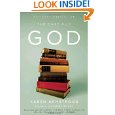In my last post I gave a horrifying end of the world scenario and noted that it was the same as what atheists believe is going to happen to all life during the heat death of the universe. This had been prompted by this quote from Christopher Hitchens:
…to the old theistic question, ‘Why is there something rather than nothing?’ we can… counterpose the findings of Professor Lawrence Krauss and others, about the forseeable heat death of the universe…. So, the question can and must be rephrased: ‘Why will our brief ‘something’ so soon be replaced with nothing?’ It’s only once we shake our own innate belief in linear progression and consider the many recessions we have undergone and will undergo that we can grasp the gross stupidity of those who repose their faith in divine providence and godly design. (Christopher Hitchens as quoted by Skeptic Michael Shemer in Scientific American, Nov 2010)
Skeptic Michael Shemer (who quoted Hitchens) then goes on to say, with nary a hint of irony.
The dialectical usefulness of clear logic, coupled to elegant prose (layered on top of the usual dollop of data), cannot be overstated and should be considered by scientists as another instrument of persuasion in the battle for ideas. (Michael Shemer in Scientific American, Nov 2010)
Why would anyone in their right mind fight for this idea given it’s logical conclusions? (In my last post.)
They are literally arguing that Theists are being irrational because they believe in “linear progression” (apparently eternal progress) rather than the (in their view) more rational belief that life is pointless and will end in very bad ways and that nothing we do matters in the long run.
How could they make such an argument?
But we know why, don’t we? Because the human brain isn’t capable of thinking in terms of millions or billions of years! This future is no more real to them than it is to a Theist.
But wait! Doesn’t that mean Shemer’s call for greater rationality was based on a failure of rationality?
 In my last two posts, I summarized both Karen Armstrong’s views of religion and God and her negative view of Christian doctrines.
In my last two posts, I summarized both Karen Armstrong’s views of religion and God and her negative view of Christian doctrines.